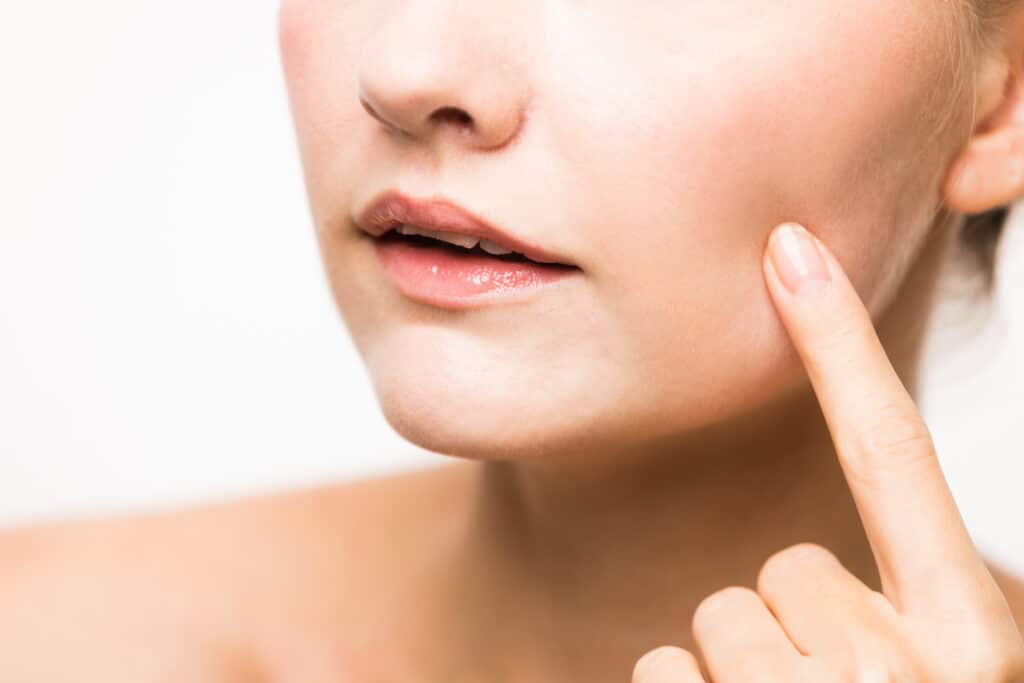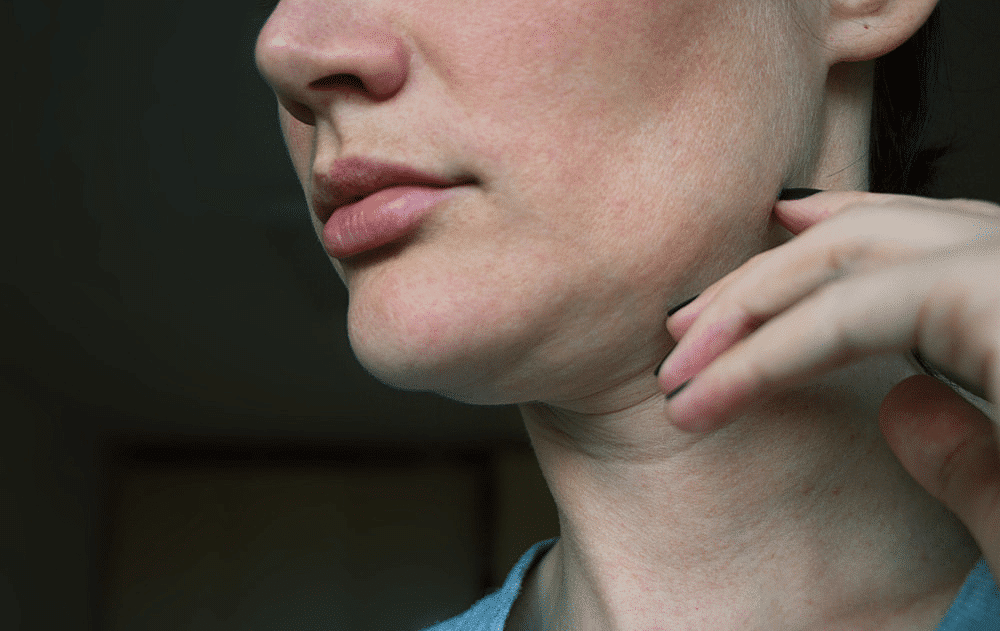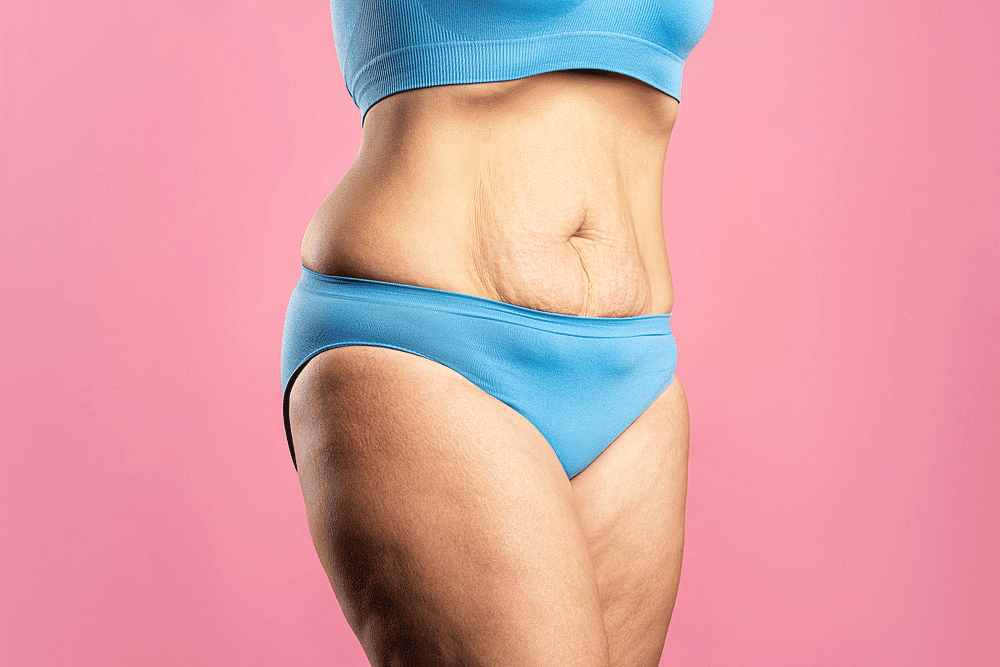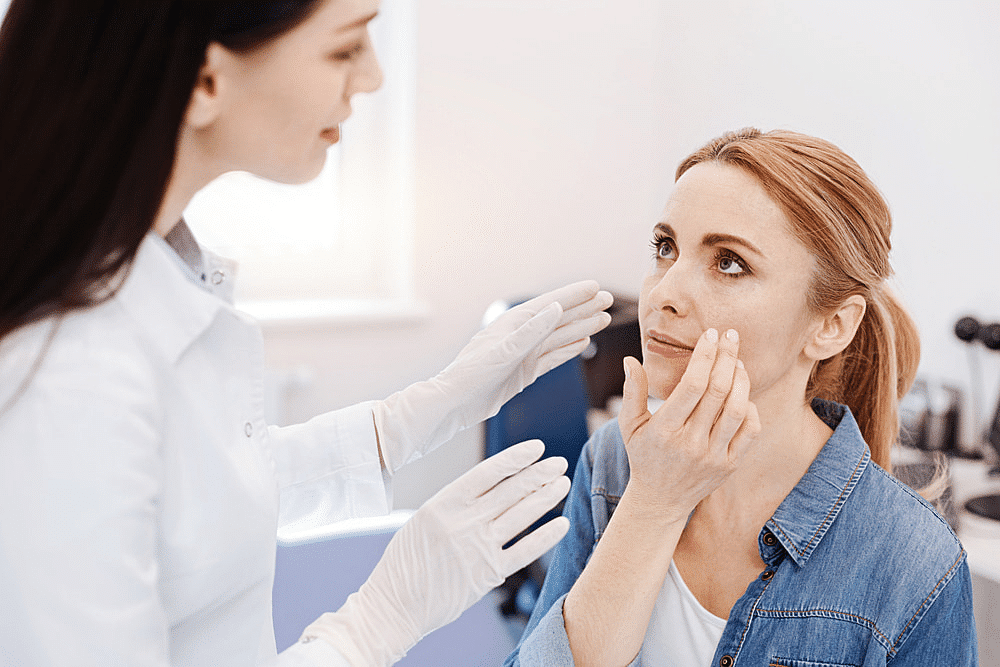
Everything You Need To Know About Saggy Skin
- January 3, 2022



“Ageing is a fact of life. Looking your age is not.”
-Dr Howard Murad
Age is just a number — until you see the first signs of drooping! That’s when you know that age is catching up to your and your skin.
That said, if you’ve recently lost a significant amount of weight, loose or saggy skin is a common occurrence too.
In fact, you’re not alone! It’s a common understanding saggy skin is one of the top issues when it comes to skincare (with wrinkles being first, of course).
While it’s common knowledge that age and weight loss are causes of saggy skin, how exactly do they make your skin saggy? How do you treat it? How do you prevent it?
If that sounds overwhelming, don’t worry — here’s everything you need to know about saggy skin or saggy neck, and how you can start your journey of rejuvenating your skin to its firm, youthful self!
Sagging skin in the lower face or jowl is one of the most obvious signs of ageing, even though it is a natural part of the ageing process.
This happens mainly due to the decline in the production of two essential proteins that help your skin stay firm — collagen and elastin.
Elastin gives your skin that elastic and bouncy feeling when it’s stretched. Collagen, on the other hand, keeps your skin taut and smooth.
As you’ve probably guessed, this decline is mainly due to age!
In fact, studies show after the age of 20, a person produces about 1 percent less elastin and collagen in the skin each year.
Adding on to that is the effect of menopause. During the first 5 years of menopause, women’s skin loses about 30% of its collagen, and 2% every year after for the next 20 years!

As the skin becomes less resilient and full, it becomes more vulnerable to the effects of gravity.
You should also know that facial ageing doesn’t just occur on the skin — the soft tissues underneath it are affected as well.
That’s why drooping occurs (such as saggy neck). It’s a compound effect from your skin losing its elasticity as well as the soft tissues underneath elongating and sagging.

When compared to saggy skin or saggy neck due to age, loose skin is more often associated with rapid weight loss.
Rapid weight loss (for example, after a pregnancy) can affect your body’s skin in a visually similar way to age. Whilst it can affect any area of your body, it is most commonly noticed on your tummy, arms and inner thighs.
That’s because carrying extra weight for an extended period can damage collagen and elastin skin fibres, making your skin less pliable and loose when you lose weight.
That’s why loose skin or sagging skin often occurs with rapid weight loss, such as after bariatric surgery.
The bigger the weight loss the more loose skin you might be left with. In fact, your skin is less likely to snap back into shape after you lose 20 kgs or more.

This is especially true for cases involving pregnancy. As the baby develops, your stomach increases in size causing your skin to stretch.
This can result in excess saggy skin on your stomach and stretch marks after the baby is delivered!
The age you have a baby can also affect how your skin recovers after pregnancy.
If you have a baby in your 20’s you are less likely to have issues with saggy skin on your stomach, compared to having a baby in your 30’s or 40’s.
Unfortunately, yes! Apart from ageing and weight loss, here are a few other reasons why you see saggy skin or loose skin on your body:
Sun exposure
When we spend a lot of time in the sun, whether it’s sunbathing, working outdoors, or enjoying recreational activities at the pool, we expose our skin cells to powerful UV rays. Over time, this exposure will breakdown elastin and collagen that are key to maintaining firm skin.
Cigarette smoking
Smoking can lead to premature ageing due to nicotine in cigarettes. It narrows the blood vessels in the skin’s outermost layers. Because of this, the blood flow in your skin is disrupted, leading to less oxygen and nutrients reaching the skin cells, reducing collagen and elastin production in your body.
Illness or medical conditions
There are medical conditions that cause saggy skin. For example, Ehlers-Danlos syndrome is a connective tissue disorder where a defect in collagen production results in saggy, doughy skin, often on the face.
Now that you know why sagging skin occurs, it’s time to learn how to treat it!
If your saggy or loose skin is minor, non-invasive and minimally invasive skin tightening treatments can drastically help improve skin tone and elasticity.
When combined with healthy lifestyle choices like no drinking, smoking, or tanning, they are more effective.
Examples of minimally or non-invasive treatments for loose or saggy skin (such as a saggy neck) include the following:
Laser therapy: These treatments boost elastin and collagen production to improve overall skin tone and firmness.
A few examples of this will be the Q-Switched Laser Skin Rejuvenation treatments or the Fotona 5D treatment. They are safe and effective treatments to improve skin tone , skin texture, skin oil production and minimise pore size.
Many experience optimal results after multiple treatments. In addition, laser therapy can effectively firm the tummy, upper arms, and other parts of the body.
Radiofrequency or ultrasound treatments: Essentially, radiofrequency or ultrasound treatments use heat to induce immediate collagen contraction.
After application, the subsequent secondary healing stimulates new collagen formation and remodelling in the deep layers of the skin — this effectively results in skin tightening.
Although fundamentally utilising different technologies, HIFU (High Frequency Focused Ultrasound) and Thermage treatments both achieve the desired rejuvenating effect for saggy or loose skin!

While saggy or loose skin isn’t a health concern, it does have an impact on your self-confidence and how you feel about your body.
As the saying goes, prevention is always better than cure!
Hence, taking steps to boost your skin’s elastin and collagen by visiting a dermatologist as you get older makes sense, don’t you think?
When it comes to when is a good time to seek professional help, it’s definitely recommended to be sooner rather than later.
That’s because non-surgical treatments that improve your body’s skin are much more effective and longer-lasting at a younger age. This will achieve a better outcome and help keep your body looking firmer for longer!
It should also be noted that there are differences between aesthetic clinics and beauty centres.
Many beauty centres are founded by and operated by beauticians, but you’ll only find medically-qualified doctors or dermatologists at aesthetic clinics.
That’s why it’s a good idea to get some advice from a reputable clinic who can help you.

As with most things about ageing, prevention is key to help your skin stay firm, taut and keep its youthful appearance.
As mentioned above, excessive exposure to the sun’s UVA and UVB rays and smoking cigarettes can accelerate collagen and elastin degradation in the skin.
However, did you know that a poor diet and basic lifestyle can also accelerate saggy or loose skin?
To help prevent premature skin ageing, experts recommend the following tips:
Protect your skin from the sun all day, everyday. Use a daytime moisturizer that includes SPF to get your anti ageing and hydration benefits plus sun protection in one product. If you love the sun, supplement your daily moisturizer-sunscreen with a recreational sunscreen if you plan to be outdoors for extended periods of time.
Don’t smoke or stop smoking as soon as possible. Cigarette smoking accelerates collagen loss and premature ageing — that’s a fact. Add on to that is the effect of nicotine on your blood vessels, and you see why smoking is one of the causes of ageing and saggy skin.
Eat a healthy, well-balanced diet. Research suggests that a diet of too much sugar or other refined carbohydrates can accelerate ageing. Eating a diet rich in antioxidant-rich fruits and vegetables is vital to preventing damage that leads to premature skin ageing.
Exercise regularly. Studies show moderate exercise can improve circulation and boost the immune system giving the skin a more-youthful appearance. Physical fitness, meditation, and deep breathing exercises are also great ways to relieve stress.
Get your beauty sleep. Experts recommend 7-9 hours for sleep every night for the average adult. When you’re tired, it shows on your skin.
Exfoliate and moisturize daily. Exfoliation with an alpha hydroxy or polyhydroxy acid (AHA, PHA) is one of the ways to renew your skin. Serums and moisturisers trap water in the skin, helping to restore the skin barrier and prevent oxidative damage.

While treatments and prevention are the ideal routes to maintaining youthful and firm skin, skin firming creams out there can also promote the natural production of collagen and elastin.
They usually contain moisturizing ingredients designed to plump up the skin, thus minimizing the appearance of saggy or loose skin.
Regardless of the brand, you should look for skincare that contains these ingredients:
Hyaluronic Acid
Hyaluronic acid (HA) is a substance naturally produced by the body and is primarily found in the skin, eyes, joints and connective tissues.
The function of HA is to keep tissues hydrated and provide the skin with structure, particularly in the outer layer of the skin.
Retinoids
Retinoids are vitamin A derivatives commonly added to over-the-counter (OTC) topical skin preparations for the purpose of minimizing signs of photoageing such as lines, wrinkles and hyperpigmentation.
Retinol also stimulates the production of collagen and promotes the development of new blood vessels, giving the skin a healthy appearance!
However, it is advised to be cautious with the delicate eye area when using products containing retinoids, as this skin is thin and most vulnerable to damage.
Vitamin C
Lastly, vitamin C is a potent antioxidant that provides significant protection against the effects of photoageing.
Environmental stressors such as sun and pollutants damage skin and cause it to sag and loosen over time. Adding vitamin C to a skin care routine helps repair that damage as well as protect the skin from the effects of oxidative stress.

Home remedies for tightening skin have existed for a long time.
However their claims are not backed up by studies. Here are just a few examples of typical home remedies shared around that aren’t proven to be effective!
Cucumber masks and other topical treatments
Home remedies using witch hazel and cucumber masks may have some short-term benefits such as shrinking pores, but there is no concrete scientific evidence that these treatments have anything but fleeting effects.
It certainly does not produce the firming and lifting effect that’s overly promised by many!
Facial exercise routines
Facial workouts designed to maintain smooth, taut skin have long been endorsed by various celebrities, but there is little evidence to support the effectiveness of these exercises.
That’s because skin firmness has to do with the inherent elasticity of the skin — which involves collagen and elastin. Facial exercises have no direct effect on these.
In fact, overworking your facial muscles may also result in the opposite of the intended result: looking older!
Also, it’s important to deeper structures like facial fat pads can also droop over time. These will not change with facial exercises.
Skin tightening supplements
Do a quick Google search and you’ll find a whole variety of anti-ageing supplements out there.
Most of them claim to have skin-tightening properties that boost elastin or collagen production when ingested.
However, these supplements are often dubious, and their claims are often not fully supported by scientific studies and evidence.
The best day to start firming your skin is today. If you’re self-conscious about your saggy or loose skin, we’re here to help.
With our panel of medically-trained and certified doctors recognised by the Singapore Medical Council’s Aesthethic Practice Oversight Committee (APOC), you’re in safe and able hands to start your skin rejuvenation journey!
Visit SL Aesthetic Clinic or call us at +65 9850 71112 to start your journey to the skin you desire and deserve!
Like what you read? Share them!